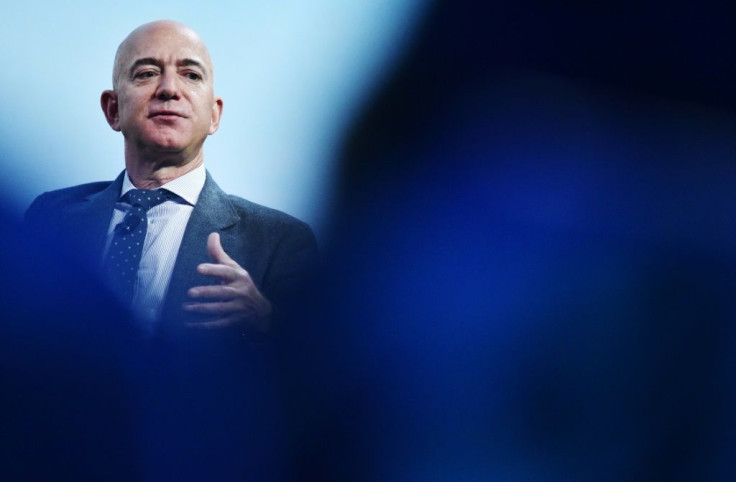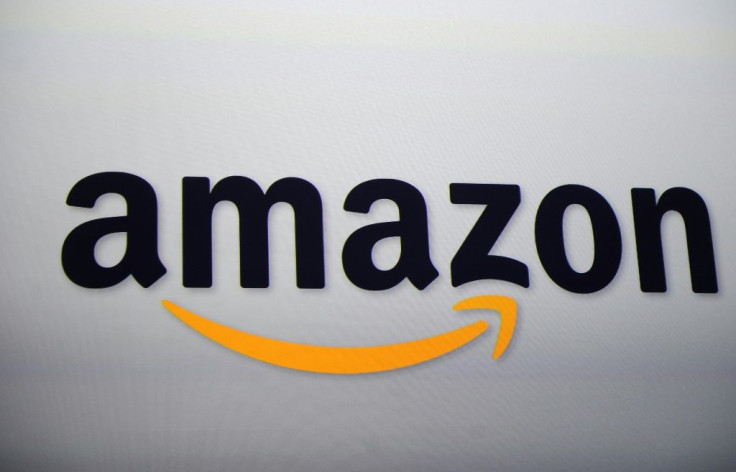Virus Expenses Hit Amazon's Bottom Line
Amazon said Thursday profits took a hit in the past quarter due to the global pandemic and that its earnings in the current period would be entirely wiped out by COVID-related expenses.
The technology and e-commerce giant said its revenues surged 26 percent in the first three months of 2020 to more than $75 billion, as people stuck at home due to the pandemic turned to it for supplies and entertainment.
But profits slipped 29 percent from a year ago to $2.5 billion for the giant which has been both a lifeline for consumers and a target for some activists.
Chief executive Jeff Bezos said all profits in the April-June quarter would be erased by expenses linked to the global virus outbreak.
"In this coming Q2, we'd expect to make some $4 billion or more in operating profit," Bezos said.
"But these aren't normal circumstances. Instead, we expect to spend the entirety of that $4 billion, and perhaps a bit more, on COVID-related expenses getting products to customers and keeping employees safe."

Amazon has become a lifeline for consumers facing lockdowns and restrictions around the world, and the company is in the process of adding some 175,000 new employees to cope with surging demand.
But the company has also faced protests from warehouse workers and activists who claim Amazon has failed to do enough to keep them safe.
Shares in the Seattle-based company slipped some 4.2 percent in after-hours trades that followed release of the earnings report.
Bezos said that "the current crisis is demonstrating the adaptability and durability of Amazon's business as never before, but it's also the hardest time we've ever faced."
"Providing for customers and protecting employees as this crisis continues for more months is going to take skill, humility, invention and money."
Analyst Patrick Moorhead of Moor Insights & Strategy said Amazon's list of COVID initiatives was impressive
"I don't think anyone can accuse Amazon of profiteering from the virus," Moorhead said.

Amazon has been scrambling to keep up with demand for supplies and groceries, including from its Whole Foods grocery chain, amid strains in getting and delivering goods.
The e-commerce leader has been prioritizing "essential items" such as household staples and medical supplies, while working to stem price-gouging from third-party sellers.
Chief financial officer Brian Olsavsky said Amazon saw a "major surge in customer demand particularly household staples and other essential products, health and personal care, groceries and even home office supplies at the same time we saw lower demand for discretionary items such as apparel, shoes and wireless products."
Olsavsky said it was difficult to predict when demand would return to normal levels and Amazon would move forward in implementing its one-day shipping plans.
"Right now things are still so up in the air that I can't really project when that day will be," he said
Neil Saunders of the research firm GlobalData Retail said it was a mixed quarter for Amazon, which has been boosting sales of low-margin items during the crisis to meet consumer demands.
"Our own data show that Amazon is one of the sales winners from the current turmoil in retail," Saunders said in a note to clients.
"As many regular stores remain closed, more consumers are turning to Amazon for essential and especially non-essential purchases."
But he said it is unclear if Amazon's logistical advantages will be a major help as economies and traditional retailers reopen.
"Amazon's nimbleness, its operational prowess and its strong presence in the digital space will help it through this crisis," Saunders said.
"However, the bottom line will suffer, and we expect more erosion and pain as the company moves into its second quarter."
Amazon's cloud computing division AWS, the leader in that sector, reported 33 percent growth to revenue of $10.2 billion.
© Copyright AFP 2024. All rights reserved.




















